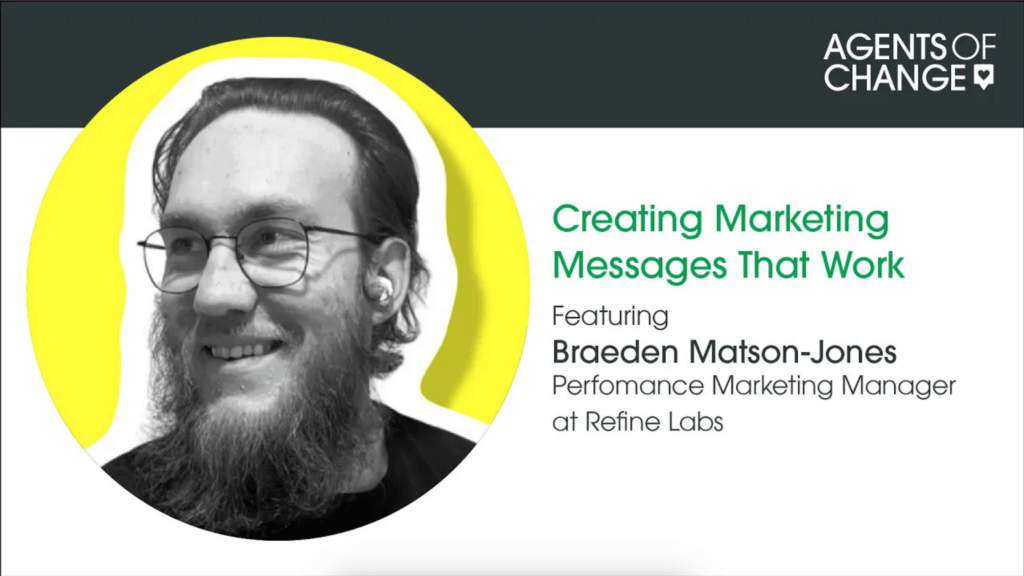In B2B marketing, messaging has unparalleled power. It’s the backbone of your marketing strategy, the voice of your brand, and the key to connecting with your target audience. So, every B2B marketer’s burning question is, “How can I get more wins with my messaging?”
Braeden Matson Jones, Performance Marketing Manager at Refine Labs, shares his insights on how to craft effective marketing messages in this episode of Leadtail’s “Agents of Change” podcast.
The Importance of Messaging
“Marketing fundamentally is communication at scale,” Braeden explains. This means that the quality of your communication directly impacts the effectiveness of your marketing. In other words, your message must resonate with your audience and align with your brand narrative.
“Bad marketing says things that are untrue to people who don’t care,” Braeden quips. “Good marketing says things that are true to people who are indifferent. And great marketing says things that are true to people who care profoundly.”
This fundamental concept reinforces the importance of understanding your audience and crafting messages that speak directly to their needs and interests.
Crafting Messages that Work
So, how do you create messages that work for B2B marketing efforts? Braeden suggests starting with a buyer-centric model. This involves understanding the needs of your ideal customer profile (ICP) and how your product or service meets those needs.
There are several ways to gain this understanding. One is through conversations with your sales team, who often have valuable insights into what customers care about. Another is direct customer research using feedback and dialogue with a select group of your happiest customers.
Braeden also recommends using tools like Winter, which allows you to target vetted ICP segments with your messaging and get immediate feedback. This can help you hone your messaging to ensure it resonates with your target audience.
The Role of Data
Data plays a crucial role in crafting effective marketing messages. However, Braeden emphasizes that marketers should use data to answer specific business questions rather than collect it for its own sake.
He suggests starting with business use cases and issues, then deriving questions from these that data can answer. This approach helps to ensure that the data you collect is relevant and actionable.
Once you have your data, it’s essential to effectively communicate the story behind it. “You have to be able to visualize and be able to communicate and articulate the story and the narrative behind the data such that an executive is gonna care about it,” Braeden says.
Navigating the Changing Landscape
The marketing landscape constantly evolves, and marketers must adapt to changing circumstances. One significant change looming for marketers in every sector and industry is the phasing out of cookies, which has implications for attribution.
Braeden advocates for a hybrid attribution model that combines software tools and self-reported attribution. This approach provides robust data that can inform your marketing strategy. And, perhaps more importantly, it will survive—and even thrive—in the cookieless future.
As for the loss of remarketing audiences due to the loss of cookies, Braeden suggests focusing on platform-level engagement. Building audiences based on engagement with your content on platforms like LinkedIn can help recapture the intent that remarketing historically provided.
Effective messaging is crucial for successful B2B marketing. By understanding your audience, crafting messages that resonate with them, and using data to inform your strategy, you can create marketing messages that genuinely work.
Braeden says, “Message comes first, distribution comes second.” This approach ensures that your marketing efforts are grounded in a powerful, compelling message that speaks directly to your target audience.
Need help creating a winning social media messaging strategy? Let’s talk!
